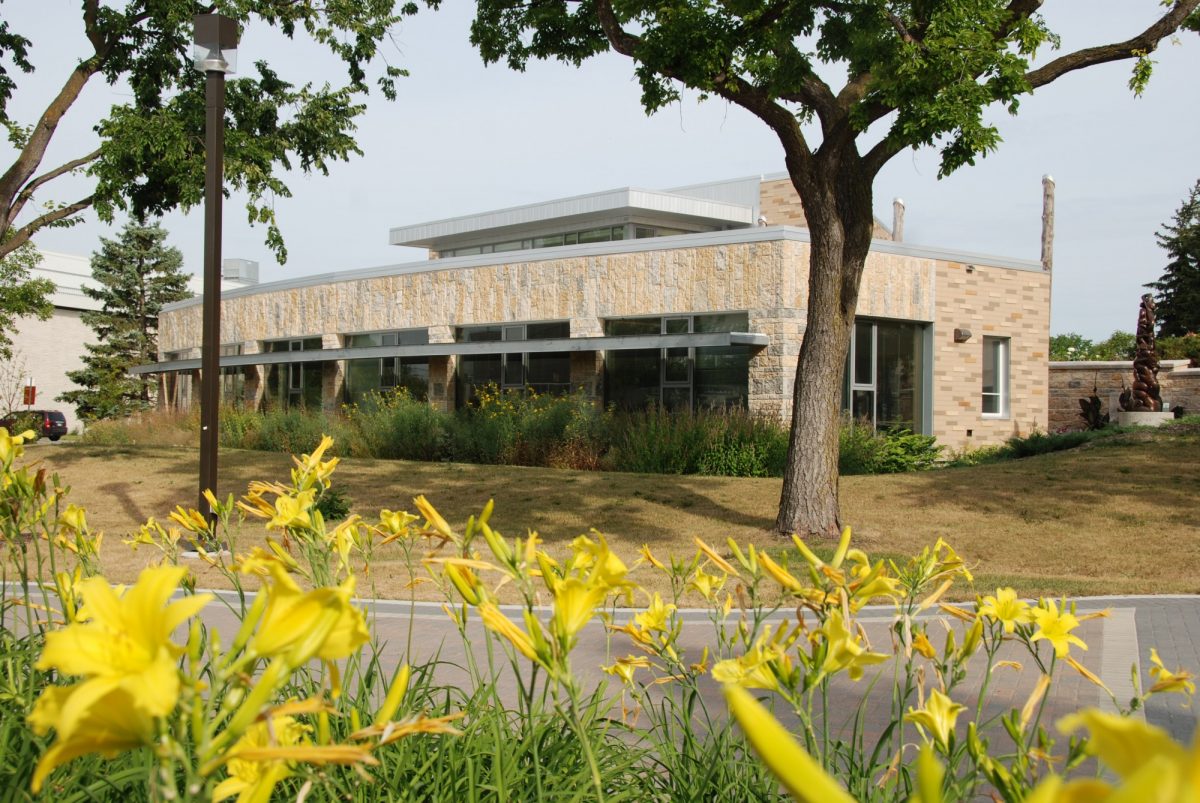
Migizii Agamik – Bald Eagle Lodge at UM's Fort Garry campus.
What we’ve heard so far: Truth and Reconciliation Framework Engagement Session feedback
A message from Angie Bruce, Vice-President (Indigenous) and Jeff Leclerc, University Secretary
Thank you to all who have participated in the engagement process and provided feedback on the University of Manitoba’s Truth and Reconciliation Framework: Time for Action (PDF) (Framework).
From May until early September 2024, we have held engagement sessions to help inform and strengthen the draft Framework, ensuring it reflects the diverse voices within the UM community. These sessions have included UM Elders, Knowledge Keepers, Grandmothers, Grandfathers, students, faculty and staff, as well as external Indigenous community partners.
We gathered rich and valuable feedback from each session, direct email and online feedback form submission. Below is a high-level summary of the main themes we’ve learned from your feedback to date:
Accountability: Feedback from the UM community and external Indigenous community partners indicated the need for all UM units, departments and faculties to be accountable for Reconciliation commitments. This means setting clear goals, regularly reporting on progress and being transparent about both successes and areas needing improvement.
Direct and Honest Language: Feedback emphasized the need to make the language in the Framework clearer and more direct, and to ensure it speaks to both Indigenous and non-Indigenous audience perspectives. Helping build trust and ensuring everyone is on the same page.
Anti-Indigenous Racism and Oppression: Feedback highlighted that language concerning the need to address and dismantle systemic racism and oppression faced by First Nations, Métis and Inuit students, faculty and staff needs to be stronger.
Real Systems Change: Feedback showed a desire for deep, structural changes that go beyond surface-level adjustments to making fundamental changes to policies, practices and workplace culture to support Indigenous rights and perspectives.
Transparency on Progress: Feedback indicated the need for the university to be open about its progress on the Truth and Reconciliation Framework and following implementation. Regular updates and clear communication are essential.
Truth-Telling: Feedback stressed the importance of acknowledging historical and ongoing injustices faced by Indigenous Peoples, specifically at UM. Sharing the truths related to UM’s history and relationships with Indigenous Peoples is a crucial step towards healing and being in right relationship. It also reinforces the message that without truth, there can be no Reconciliation.
Distinct from EDI Efforts: Finally, some feedback indicated the need for clarification of how this work is distinct from the UM’s equity, diversity and inclusion (EDI) efforts; that the Truth and Reconciliation Framework is not simply about promoting diversity and inclusion; it is about fulfilling our obligations and commitments to Indigenous Peoples.
This feedback will inform the work as we move forward with developing the next draft of the Framework.
Thank you again to everyone who has contributed to ensure the Framework has meaning. We appreciate your time and commitment to advancing Reconciliation at UM.
We invite anyone who wishes to share additional feedback to email us at reconciliaction@umanitoba.ca by September 20, 2024. Your input is invaluable as we continue this important journey.
Chi-miigwech. Thank you.
Angie Bruce,
Vice-President (Indigenous) and UM’s Reconciliation Advisory Committee Chair and Co-sponsor
Jeff Leclerc,
University Secretary and UM’s Reconciliation Advisory Committee Co-sponsor






